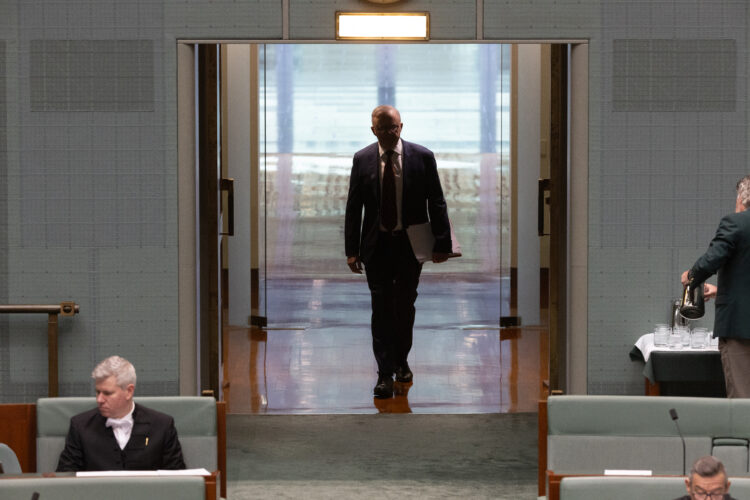That then leads to this questioning and…sigh.
Q: So Tony Burke says that he’ll release the permanent number for migration. I don’t know why that would be held back. Why would that be held back?
Mark Butler:
Well, that that number is a decision of government. It’s made as a decision of government and reported in the usual way. But obviously it’s impacted by the number of people leaving as well. So the key figure is the net figure that the, the, the difference between the number of people who come in as skilled migrants, usually family reunions, the humanitarian intake minus the number of people who leave.
Q: Isn’t the key figure, the number of people who are coming here?
Butler: Well, no, it’s the it’s the number of people coming in, minus the number of people leaving, because the number of people leaving are obviously leaving houses, leaving apartments, leaving bedrooms, creating less pressure.
Q: How many are leaving?
Butler:
Well, we’re back down to a more ordinary level of people leaving the system. I mean, the big, the big…
Q: This is a bit like an episode of frontline.
Butler:
The big, the big traffic though is actually international students. They’re the big numbers. They come in, then they leave.
Q: You can understand this is not your portfolio. But I think in government it’s pretty hot in the news right now and knowing the numbers would be good. And also I think that you are empowering extremist views by by doing and saying nothing about it and not doing anything about it. (I’m sorry, what? Doing nothing about what? What does this mean – that by giving in to the extremist delusions, than the government disempowers extremists? Do people like Karl Stefanovic ever look at themselves in the mirror and think ‘hmmm, maybe I do need to read more before opening my mouth?!)
Butler:
No, we’ve got that figure down, I think, off the top of my head by about 40% from the peak that we saw after Covid. The peak was unsurprising given the number of people who had left gone back home, particularly those international students who are a big part of our university sector. They did come back, but we’re getting those numbers back down to a more ordinary level of immigration. We’re a big immigration country, have been really forever.
Q: So more cuts to come
Butler:
Well, I think we’re still getting that that number down. It started to come down substantially over the last few years since we’ve been in government. But we recognise that that we need to do this to relieve some pressure. But Karl, I also know that as I talk to hospital operators, aged care operators, people wanting to build new houses, they are desperately short of labor. Our unemployment rate is is just a bit over 4%. Our participation rate is as high as it’s ever been, so we don’t have a lot of unused labor here in Australia. This this is a balance. As a government, we need to to strike quite responsibly.
A reminder that immigrants are people and valuable for their personhood – not just because of the work they do, or the food they make. It tends to get lost in this debate, because of conversations like this.
